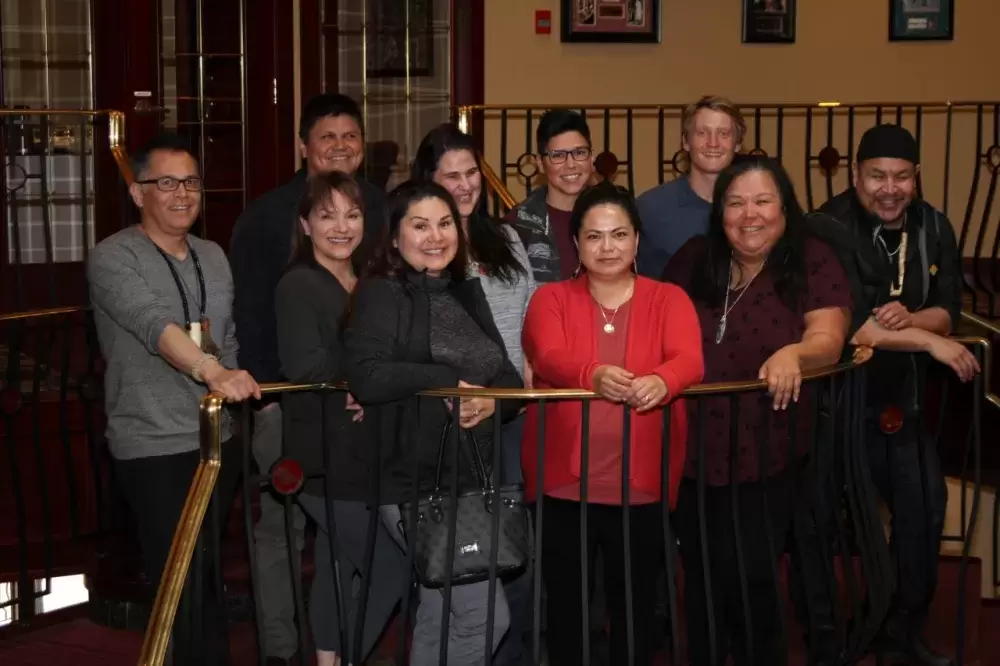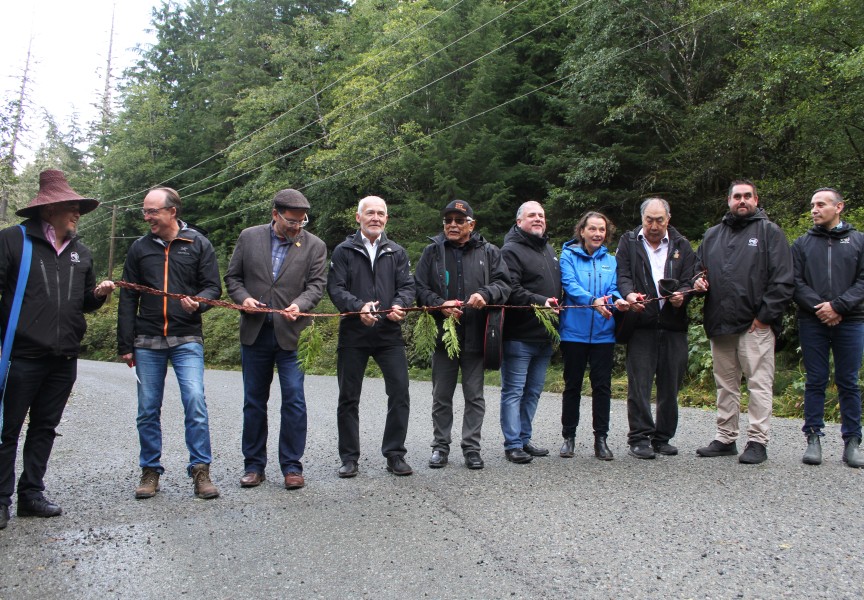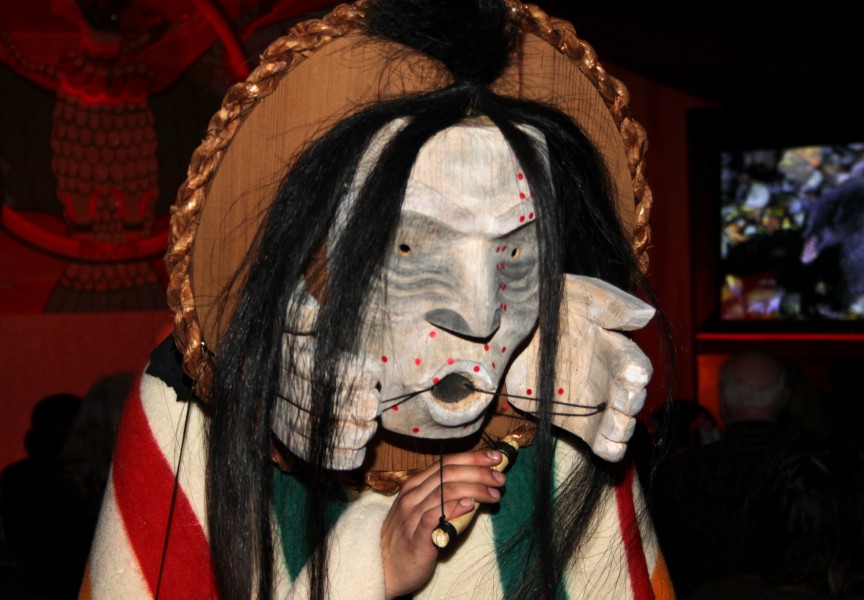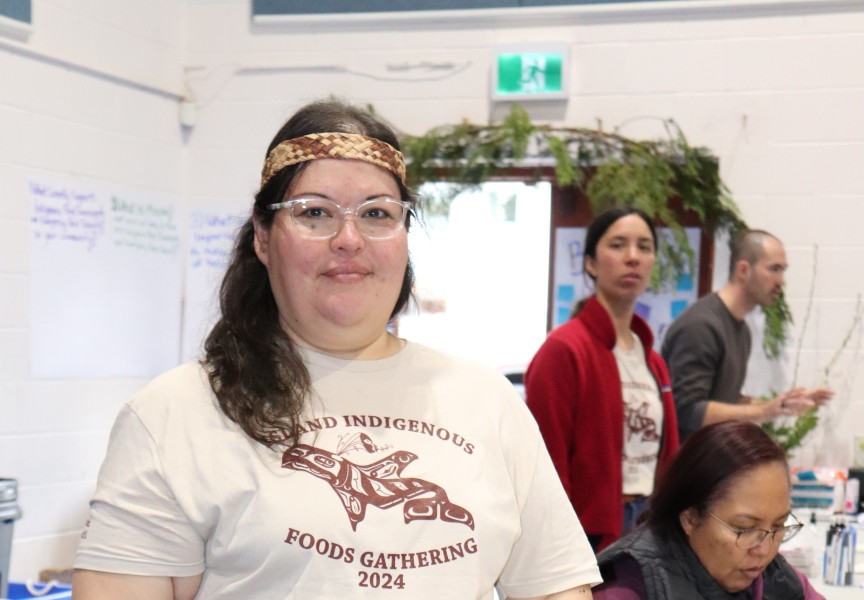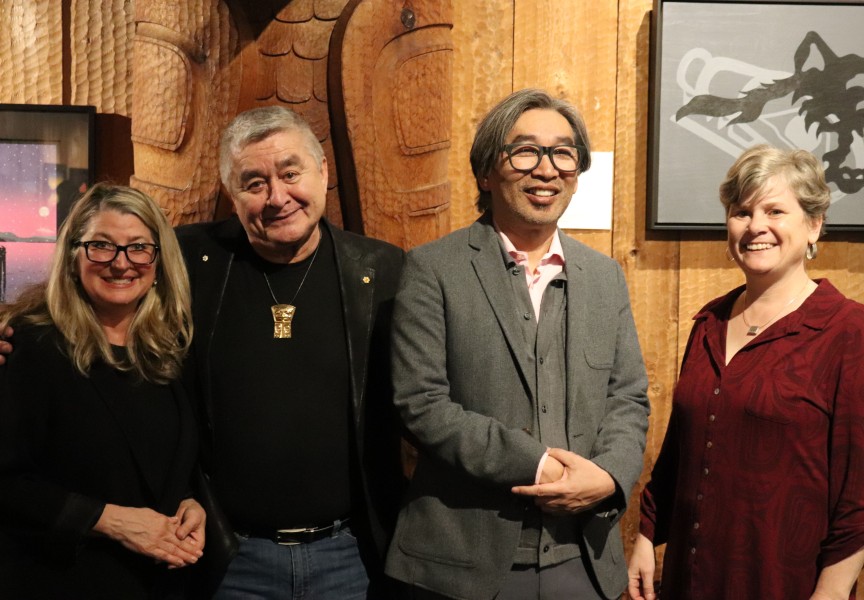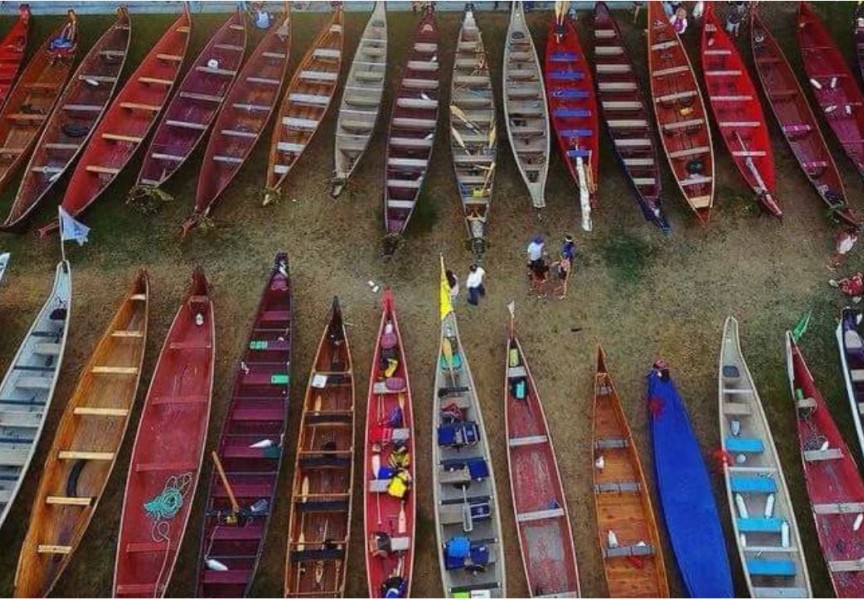In response to a need seen by mental health workers serving Nuu-chah-nulth communities for years, Teechuktl has grown its team of counsellors and cultural support staff by one quarter in recent months.
Since September 2018 Teechulktl Mental Health, a department within the Nuu-chah-nulth Tribal Council that includes the Quu’asa program, has increased its staff by 11 to 42 current employees, plus another yet-to-be-filled cultural support position that was recently approved for funding. The new positions include five child and youth counsellors, two harm reduction workers, three family development counsellors and one staff member to work with families who participated in the National Inquiry into Missing and Murdered Indigenous Women and Girls.
The new positions are largely made possible by funding from Indigenous Services Canada, after extensive lobbying from Usma Nuu-chah-nulth Family and Child Services.
“We had a huge request for more services for children and youth,” said Teechuktl Manager Vina Robinson. “I think that basically the government had to listen.”
“It was an underserviced area,” added Quu’asa Coordinator Kim Rai.
The overrepresentation of Indigenous children in care has become a national issue. Although Aboriginal people comprise just 7.7 per cent of the country’s population, they make up 52.2 per cent of children under 14 in the foster care system, according to Statistics Canada. In Western Canada the situation is even more severe: Alberta’s Indigenous children make up 70 per cent of those in care, while 63 per cent of B.C.’s children in the foster system are Aboriginal. This has led Indigenous Services Canada to call the number of Indigenous children in care “a humanitarian crisis.”
In his new role as a family development counsellor, Thomas Paul will be working on the front lines of the issue, including providing support to families with children in the foster care system. For Paul this is a personally meaningful job after he’s seen the longstanding effects of the residential school system and colonial practices on Nuu-chah-nulth families.
“To rebuild the family unit, that’s your end goal,” said Paul. “To have the Nuu-chah-nulth values again; some of the ways that we’re living today aren’t the way we used to be as a family, just loving your children unconditionally in every aspect, even the way you prepare foods.”
Paul has seen a detachment disorder develop among those who lost their Nuu-chah-nulth cultural identity.
“I think a lot of our young families don’t really have that connection,” he said. “It’s real and it haunts you when you have that detachment.”
Kim Erickson, who is also starting her new role as a family development counsellor, said that families can be like “strangers living in the same home” when they are reunited after having children in care. For the last six years she worked in child protection with Usma.
“I think families have forgotten how to have fun together,” said Erickson. “I need to see families coming back together, I need to see them reuniting and I need to see them being families again.”
It’s essential to be aware of supports beyond a child’s immediate family, said Melinda Sinclair, a child and youth mental health counsellor in Port Alberni who has just transitioned from being a clinical counsellor for the NTC’s Central Region.
“You just really have to listen and be in tune with what’s going on in the community,” she said. “That cultural piece is so important to them. If you match them up with elders, you can teach them their cultural teachings, you can tell them where they belong, you can tell them their history - a whole bunch of things that these kids are missing.”
“I think that everyone has very similar problems,” observed Rebecca Visscher, a child and youth mental health counsellor who started in March. “Trauma is the common thread between all of the communities. I think it stems back to the intergenerational trauma from the residential schooling with family separation and the loss of cultural and parenting awareness.”
Dealing with the effects of trauma became a focus as family stories unfolded in the National Inquiry Into Missing and Murdered Indigenous Women and Girls. In September 2017 a gathering was held in Port Alberni for Nuu-chah-nulth families affected by this country-wide phenomenon, which identified over 30 women who are either missing or were murdered since the 1960s. As the inquiry wraps up, Teechuktl has moved Lisa Watts into her new role of working with families of victims who helped to inform the national initiative.
“For some of them it was the first time they’ve ever talked about their grief, so they released some of it,” said Watts. “They found out people still cared and that their loved one was remembered and cared for.”
But Watts has found that the pain persists even for families who lost a loved one decades ago.
“As a mom, as a grandmother and as a First Nations woman, it is tough, however it is something that has to be dealt with a lot of love, with a lot of caring. It has to be addressed,” she said. “I want my granddaughter, I want my nieces and nephews, I want all of them to live well and be held with high regard and respect as well. A way of doing it is stomping out these old ways, making them known. This did happen, there’s a reason why these ladies were murdered.”
Margaret Bird has served as a clinical counsellor with the NTC for over 30 years. Over this period she has observed a shift the federal government’s recognition of the value in culturally based healing for First Nations.
“They were only looking at things from the western perspective,” she recalled. “There was no funding for cultural counsellors, because it was a western-viewed medical model that was providing the funding for the counsellors.”

